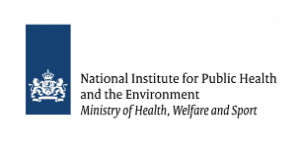National Institute for Public Health and the Environment (RIVM)
Brief Biography of Organisation:
The RIVM has been safeguarding and promoting public health and environmental quality in the Netherlands for over 100 years. It collects, analyses, and disseminates knowledge and information from various sources, both national and international organizations dealing with complex issues in public health and the environment. As many health issues require an international approach, we look beyond national borders and cooperate with partners in other countries to extend our own knowledge and to improve the quality of our research and policy advice.
Hence, RIVM has a strong international position and is among the top institutes in specific areas. Much of our work is done in the European context and networks, but we also cooperate with United Nations organizations, such as the World Health Organization (WHO). In fact, in 2018 we became WHO collaborative center for preparedness.
With approximately 1,500 staff members, the RIVM organization consists of three domains with specific knowledge and expertise:
- Infectious Diseases and Vaccinology (Centre for Infectious Disease Control),
- Environment and Safety (including environmental incident service), and
- Public Health and Health Services (including food and food safety).
Within the domain of Infectious Diseases and Vaccinology, the National Coordination Centre for Communicable Disease Control (LCI) coordinates the control of infectious diseases. In the event of an outbreak, it is responsible for accurate communication to ensure a prompt and effective response, as well as scientific advice on outbreak control measures to the government and for implementation by health professionals. One of the main tasks of the centre is to strengthen preparedness planning at national level, by developing preparedness guidelines, monitoring their implementation in the field and stimulating simulation exercises. Staff within this centre includes physicians specialized in communicable disease control (CCDC) and Public Health (PH), PH nurses, prevention experts and Public health researchers, but calls upon the broad experience of all centres within the RIVM and other partner organizations. Additionally, it also functions as an educational institute for professionals in the field of infectious disease prevention and control.
The LCI has the following specialist tasks, each of which falls to a specialist department:
- Preparedness and Response
- Stakeholders involvement and network development
- Development and implementation of guidelines and operating procedures
Role Organisation will play within project:
The RIVM, in close collaboration with the RUNMC, represents one of the key end-users of the software tools developed during PANDEM-2. RIVM will provide input on the various work-packages and is involved in the development of training exercises for pandemic managers and first responders. We will assess the needs, feasibility and practicality of the software tools for national, regional and local stakeholders. In addition, the RIVM will have a major role in the development of the resource planning system, in which we will use our previous expertise and knowledge gained during the AsiaFluCap project and other international projects.




